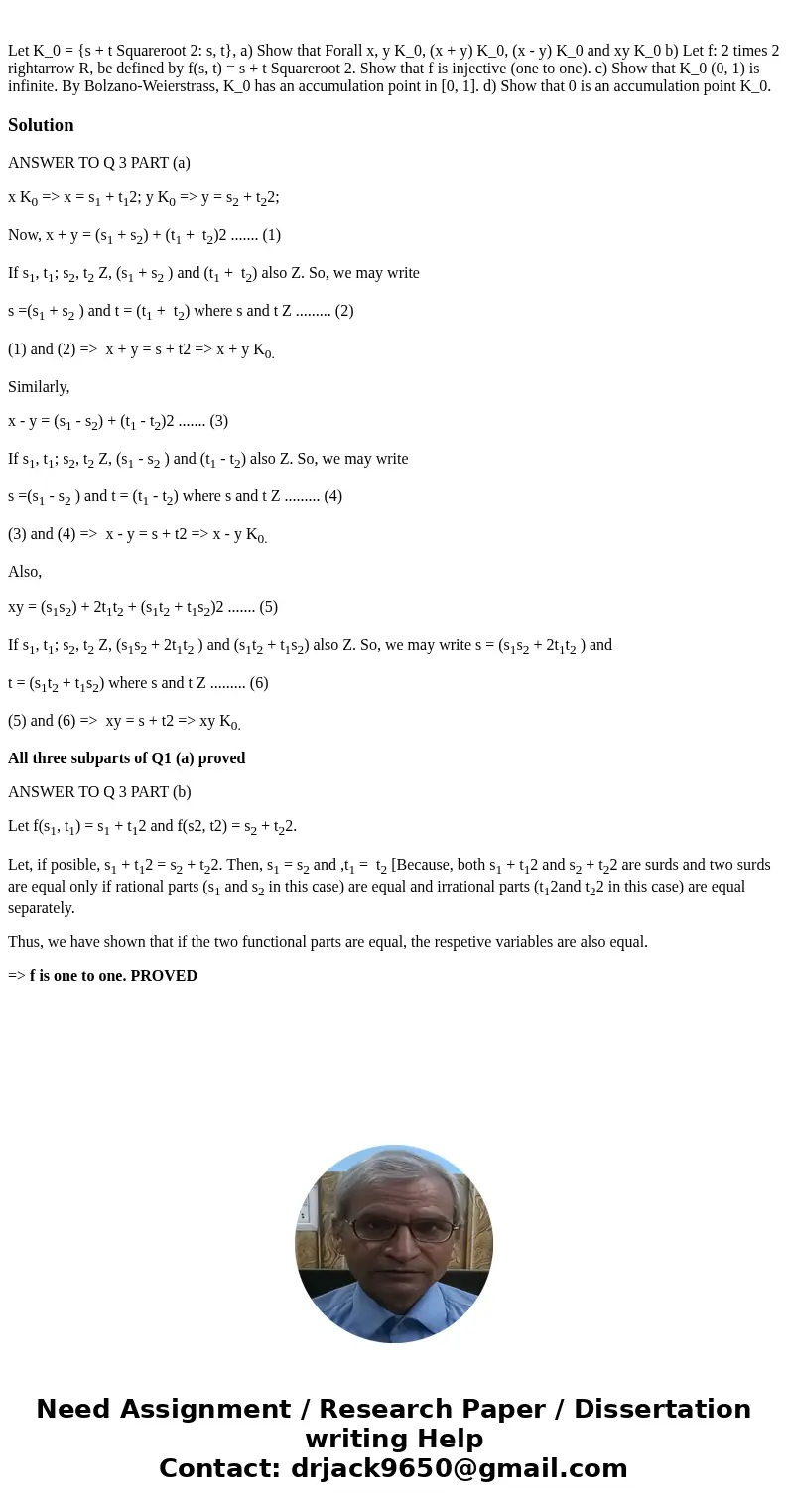Let K0 s t Squareroot 2 s t a Show that Forall x y K0 x y
Solution
ANSWER TO Q 3 PART (a)
x K0 => x = s1 + t12; y K0 => y = s2 + t22;
Now, x + y = (s1 + s2) + (t1 + t2)2 ....... (1)
If s1, t1; s2, t2 Z, (s1 + s2 ) and (t1 + t2) also Z. So, we may write
s =(s1 + s2 ) and t = (t1 + t2) where s and t Z ......... (2)
(1) and (2) => x + y = s + t2 => x + y K0.
Similarly,
x - y = (s1 - s2) + (t1 - t2)2 ....... (3)
If s1, t1; s2, t2 Z, (s1 - s2 ) and (t1 - t2) also Z. So, we may write
s =(s1 - s2 ) and t = (t1 - t2) where s and t Z ......... (4)
(3) and (4) => x - y = s + t2 => x - y K0.
Also,
xy = (s1s2) + 2t1t2 + (s1t2 + t1s2)2 ....... (5)
If s1, t1; s2, t2 Z, (s1s2 + 2t1t2 ) and (s1t2 + t1s2) also Z. So, we may write s = (s1s2 + 2t1t2 ) and
t = (s1t2 + t1s2) where s and t Z ......... (6)
(5) and (6) => xy = s + t2 => xy K0.
All three subparts of Q1 (a) proved
ANSWER TO Q 3 PART (b)
Let f(s1, t1) = s1 + t12 and f(s2, t2) = s2 + t22.
Let, if posible, s1 + t12 = s2 + t22. Then, s1 = s2 and ,t1 = t2 [Because, both s1 + t12 and s2 + t22 are surds and two surds are equal only if rational parts (s1 and s2 in this case) are equal and irrational parts (t12and t22 in this case) are equal separately.
Thus, we have shown that if the two functional parts are equal, the respetive variables are also equal.
=> f is one to one. PROVED

 Homework Sourse
Homework Sourse